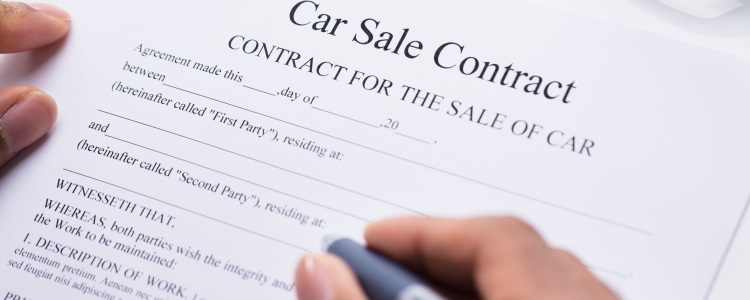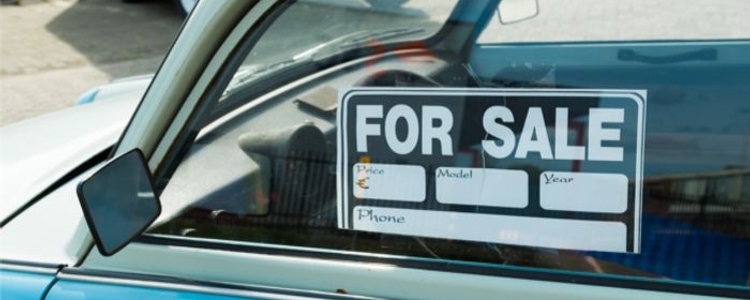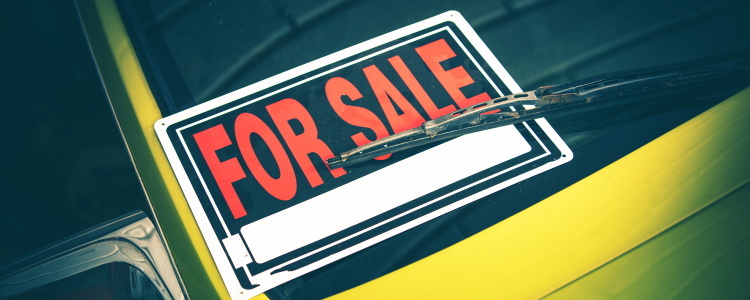If you have poor credit and need a vehicle, you might be considering buying one from a private seller. But not only is this difficult, it might not even be a good idea.
We Answer Private Seller Questions
Last month here at Auto Credit Express, we received over two hundred questions from car buyers, many of whom are dealing with credit challenges. Here is one about a private seller:
"Good morning. I need to buy a used vehicle. I found a good 2015 vehicle for $20,000 from a private seller. Is this something you can help me with? Thank you."
There are a number of parts to the answer, so let's begin.
Auto Credit Express is Not a Bank
To begin with, it looks like this buyer thinks Auto Credit Express is a lender. We are not. What we do is match consumers with less than perfect credit to dealers in their area that have special finance departments and are willing to work with credit-challenged car buyers.
The question also mentioned a credit score range (that we omitted) which indicated that this person does have bad credit.
Dealer or Private Party Sale
In the question, this consumer used the words "private seller." The problem with this is that most subprime lenders only work through licensed car dealers. The reason for this is that car loans to consumers with credit issues – subprime loans – are riskier than regular car loans. As a result, subprime lenders require additional documentation and have their dealers collect information from the proper documents from borrowers. If it turns out the information is incorrect, the lenders can refuse to fund the loan and the dealer becomes responsible for it.
So, without the additional step of dealer verification (something that can't be done with a private seller), subprime loans would be even riskier, leading to fewer loans and higher interest rates for credit-challenged borrowers.
Debt to Income Ratio Issues
The question also states that this consumer found a 2015 used car for $20,000.
There are two issues with this. For one, we don't know what kind of vehicle it is, or if it's even worth $20,000. Subprime lenders typically base the amount they will loan as a percentage of a vehicle's NADA or Kelley Blue Book value. If it isn't worth the asking price, the borrower has to come up with an additional down payment to cover the difference or look for another vehicle.
Secondly, can this person even afford the payment? In other words, has this person computed their debt to income (DTI) ratio to see if they have enough income, after bills, to cover the car payment each month? If not, they will have to look for another car because subprime lenders will not allow borrowers to take on a monthly car payment if their monthly bills, plus the car and insurance, are more than 45 to 50 percent of their monthly income before taxes.
Finally, subprime lenders will typically not allow borrowers to have a monthly car payment that, by itself, is more than 10 to 20 percent of their monthly income before taxes. This is called a payment to income (PTI) ratio.
Even if they've checked the value of the vehicle, has this borrower computed either of these ratios for this $20,000 car? Probably not.
The Bottom Line
Here is what we suggest: If this borrower has bad credit, they should keep an open mind about buying a car from a licensed dealer as well as the kind of vehicle they need – at least until they repair their credit. Once this person's credit is back on track, they can pick and choose both where to buy it from and the make and model of the vehicle.
If you find yourself in this position, we want you to know that Auto Credit Express is here to help. We have a nationwide network of car dealerships that are trained in special finance. This means they have the lenders and know-how to help people in all types of credit situations.
Our service is free, fast and puts you under no obligation to buy anything. See what we can do for you by filling out our car loan request form today.
















